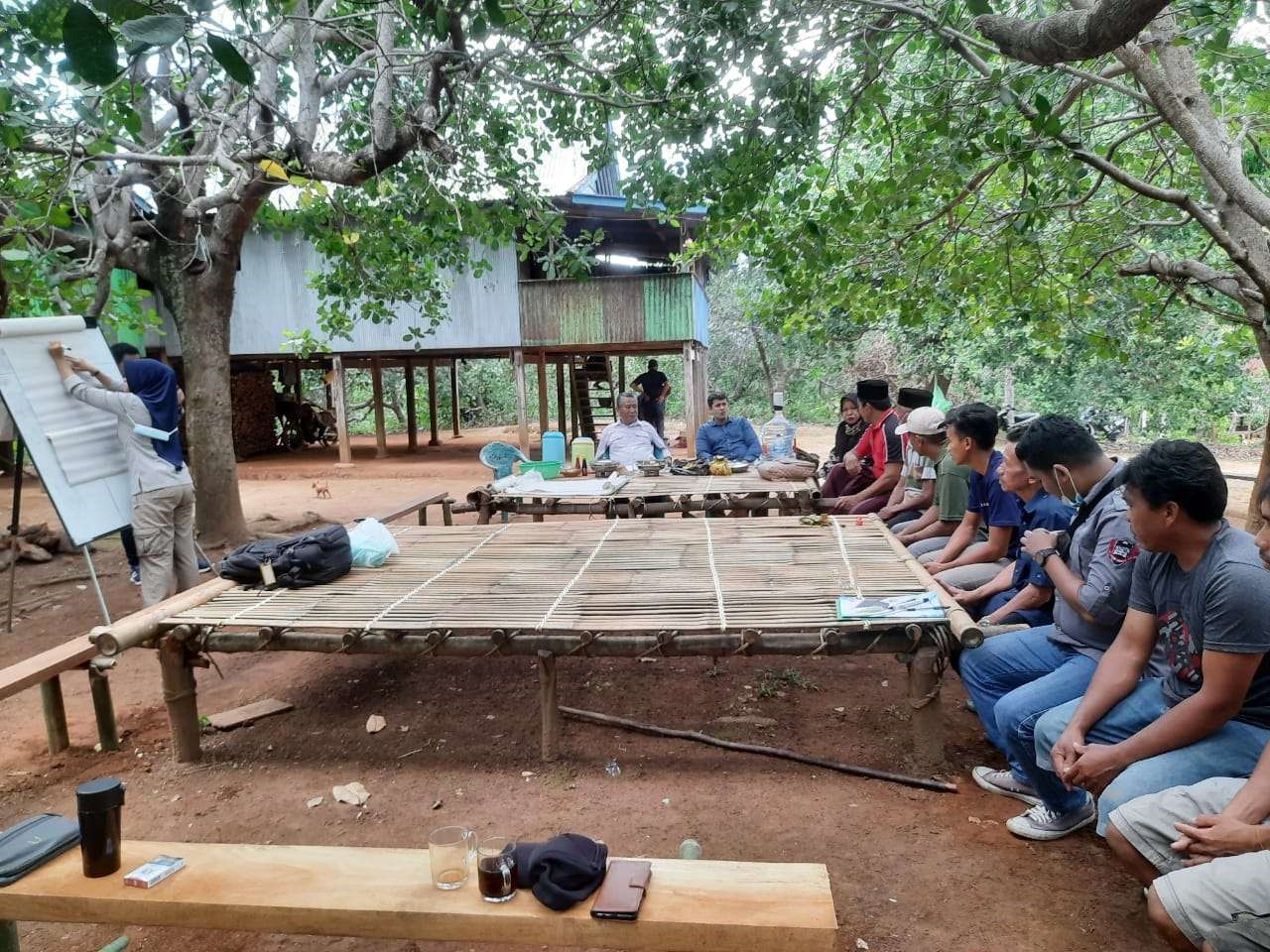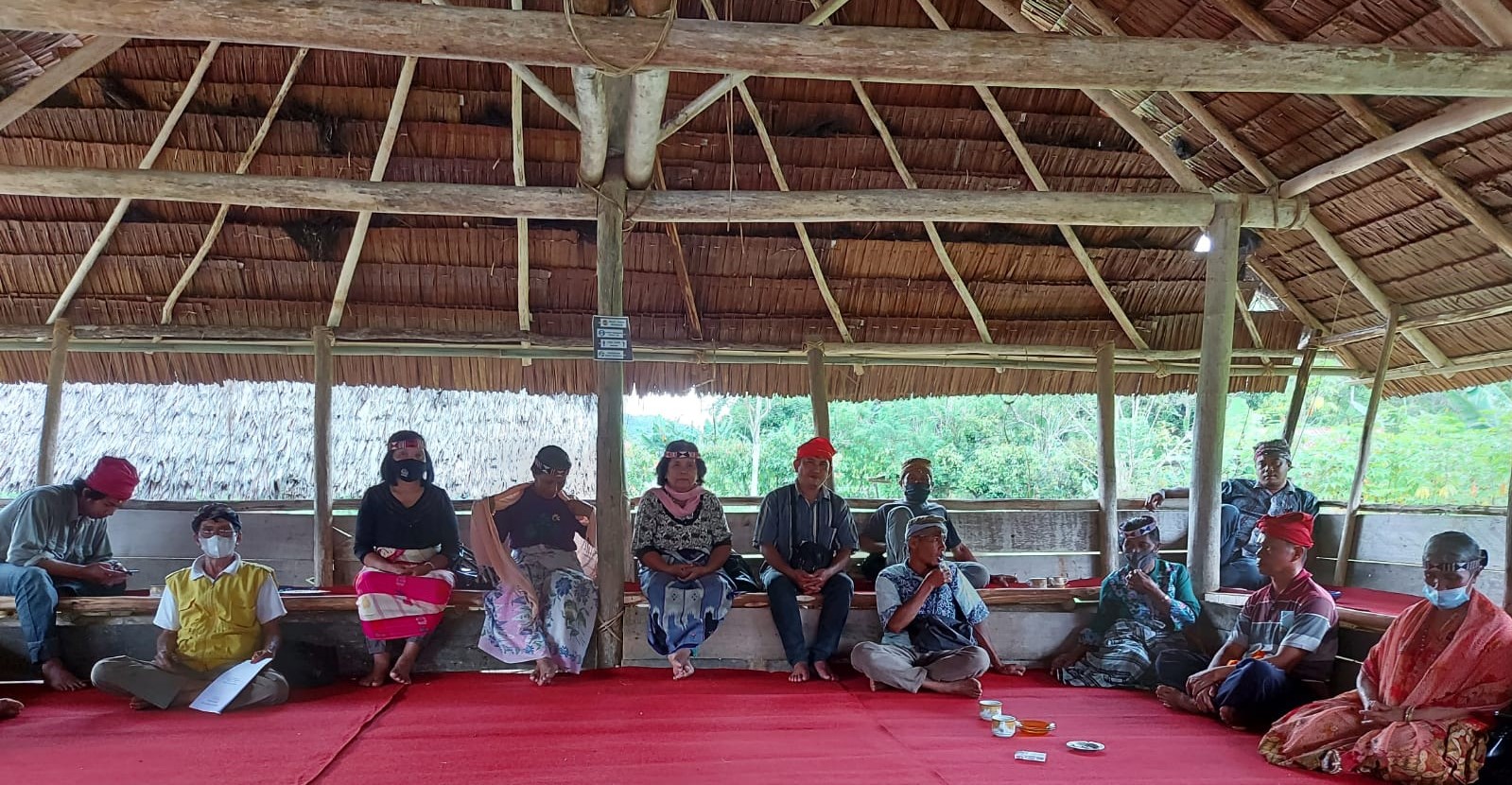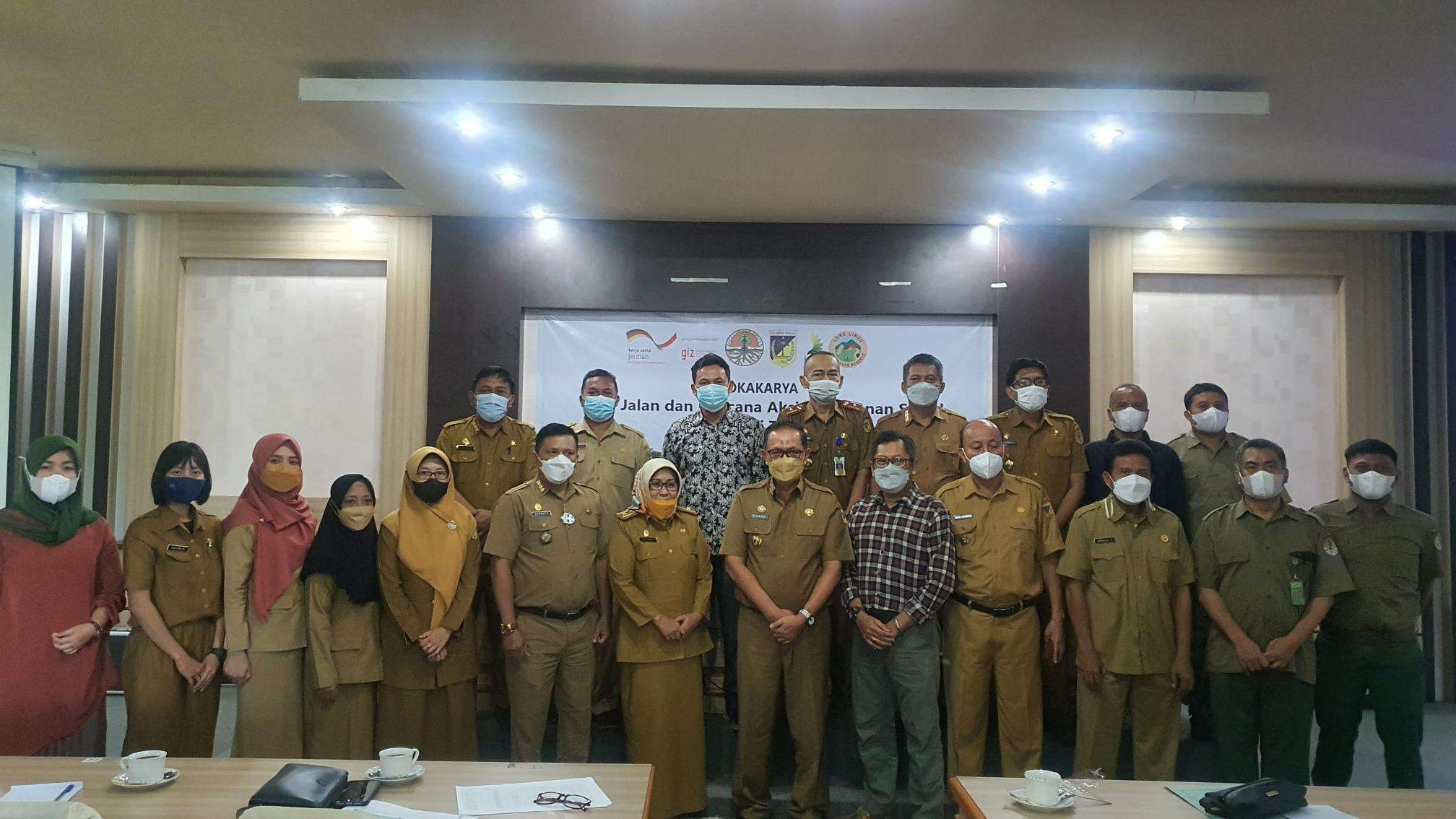FORCLIME
Forests and Climate Change ProgrammeTechnical Cooperation (TC Module)

Select your language

In an effort to increase the capacities of assisted forest farmer groups, the Environmental and Forestry Education and Training Center (BD LHK) in Makassar, South Sulawesi held an informal meeting on 16 September 2021. The meeting was attended by 20 representatives of the Mattiro Deceng Forest Farmers Group, the BD LHK team in Makassar, the Extension Officer from the Forest Management Unit (KPH) of Bulusaraung and FORCLIME. During the meeting, which was led by the Head of the evaluation department at BD LHK Makassar, the Forestry Extension Officer and FORCLIME’s adviser, the Mattiro Deceng affirmed that the processing of palm sugar and natural honey was making a significant contribution to the community’s income. However, the community continues to face various challenges, including: (1) The production and quality of palm sap is being strongly influenced by the climate; (2) The harvesting of honey continues to be undertaken through the use of the fumigation technique, which has the potential to cause forest fires, as well as accidents, due to the fact that this technique involves the climbing of tall trees; (3) The marketing of palm sugar and honey is still being undertaken on an individual basis, meaning that the overall bargaining position of the community remains low and that prices fluctuate. In the wake of these problems, the Mattiro Deceng are hoping to receive support for the marketing of wild honey and palm sugar, as well as in relation to the diversification of their palm-sugar products and the introduction of sustainable bee harvesting.
The Mattiro Deceng Forest Farmers Group live in Panggalungan in Tabo-Tabo Village in Pangkep Regency, South Sulawesi. This village is one of a number that surrounds the Tabo-Tabo Training Forest. The group was first formed by the Forestry Extension Officer at BD LHK Makassar back in 2014. The Mattiro Deceng comprises 30 people who are working to develop their business, which involves the processing of palm sugar and the harvesting of wild honey from the Tabo-Tabo Training Forest area.
As a follow-up to this meeting, the KTH Mattiro Deceng will continue to hold regular meetings in order to discuss solutions to the various challenges that they continue to face.
For more information, please contact:
Edy Marbyanto, Strategic Area Manager for Human Capacity Development
Daniel Maertz, Adviser for Adult Education and Training

With the ultimate goal of conserving the various customary rules and local wisdom that regulates the local community’s social life, particularly in relation to the management and protection of natural resources, Toro village and the Lore Lindu Biosphere Reserve Communication Forum have committed to documenting the various customary rules and local wisdom which currently only exist in the scattered memories of the village elders. In order to initiate this task, a coordination meeting was held in Toro village in the western part of Palu, Central Sulawesi on 23 September 2021. The meeting was opened by the Head of Toro village, Mr Mulyanto Dharmawan Lagimpu, and was attended by local communities.
During the meeting, participants agreed on the following:
1. Collection and extraction of information from the local community, particularly from elderly citizens who still have relevant information stored in their memories.
2. Determination of the Toro language for the documentation of customary rules and local wisdom.
3. Translation of contexts and meanings into the Indonesian language in order to facilitate wider comprehension.
After this task has been completed, the collected customary rules and local wisdom will be compiled into a guidebook that will then be published and distributed to all sub-village and village offices. It is hoped that this project will inspire younger generations to retain and preserve the knowledge of their ancestors, particularly as it relates to the management of natural resources.
The residents of Toro follow various philosophical tenets in relation to their social lives, specifically:
1. Hintuwu, which regulates relationships between people;
2. Katuwua, which regulates relationships between people and nature;
3. Petukua, which regulates relationships between people and the Creator.
For more information, please contact:
Fikty Aprilinayati, Adviser for Sustainable Forest Management and Biosphere Reserve Management
Ismet Khaeruddin, Senior Adviser for Biodiversity Focal Point for the KFW Forest Program 3 and Provincial Coordinator for Central Sulawesi

The Regional Medium-Term Development Plan (RPJMD) for Central Sulawesi Province 2021-2026 sets a total target of 100,000 ha, which includes 25,000 ha per year for social forestry. Based on this plan, social forestry is capable of supporting the various ecological functions in ways that are both economically and socially beneficial to surrounding communities through partnership schemes. With these goals in mind, the Central Sulawesi Provincial Forestry Service, supported by FORCLIME, held a coordination meeting on 5 October 2021 with the aim of developing an action plan capable of accelerating social forestry manage-ment. The meeting, opened by the Head of the Forestry Service, Dr.Nahardi, was attended by representa-tives from the Forest Management Unit Forum (KPH), the Social Forestry Working Group, Tadulako Univer-sity, the Regional Secretary of Central Sulawesi Province, the Cooperatives and UMK Office and the Trade and Industry Office.
In his speech, Dr. Nahardi affirmed that social forestry was closely related to poverty alleviation and thus supported the vision put forward under the Central Sulawesi Province Regional Development 2021-2026 programme, specifically, ‘Move Quickly Towards a More Prosperous and More Advanced Central Sulawesi’. Furthermore, Dr. Nahardi asserted that social forestry can:
1. Support the enhancement of productivity in relation to food crops, plantations, fisheries, livestock and other commodities.
2. Realize an increase in community welfare through the economic empowerment of the community and through the strengthening of institutions.
3. Encourage the formation and increase the productivity of leading regional sectors.
During the preparation of an action plan aimed at accelerating the management of social forestry, various issues will be taken into consideration, including: appropriate sources of funding, allocation of funds/capital resources, determination of superior/mainstream commodities in each region, types of ac-tivities to be developed, communities able to utilize forest resources sustainably.
The results of focused discussions regarding the preparation of an action plan aimed at accelerating the management of social forestry partly comprised a matrix that addressed the following topics:
a. Policy strengthening and stakeholder support.
b. Management that will preserve the function of forest areas that support community income.
c. Institutional management aimed at achieving the independence of Social Forestry Groups through community-based forest management.
In order to follow up on this meeting, the action plan document will be finalized after it has first been re-viewed by the Head of the Central Sulawesi Provincial Forestry Service. Preparations will then be made for its dissemination to all KPHs and regional organizations that relate to the social forestry programme.
For more information, please contact:
Fikty Aprilinayati, Adviser for Sustainable Forest Management and Biosphere Reserve Management
Ismet Khaeruddin, Senior Adviser for the Biodiversity Focal Point for the KFW Forest Program 3 and Provin-cial Coordinator for Central Sulawesi
 |
Supported By: |
  |